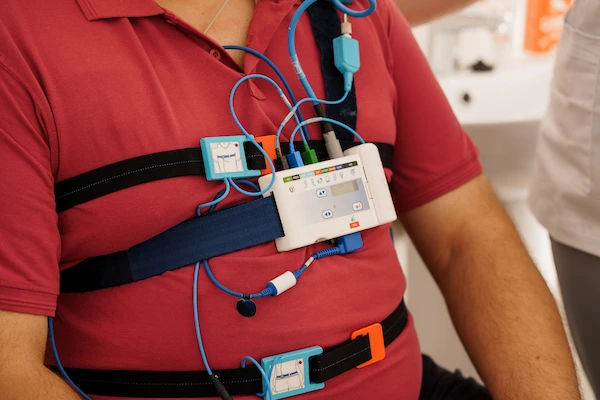- Female
- 17 Years
- 23/01/2025
I've been feeling a bit off with some discomfort and pressure in the middle of my chest for the past four days. It kind of comes and goes, and sometimes it suddenly gets really painful. I have this fear of vomiting (emetophobia) so anything unusual with my body really freaks me out. Can you help me figure out what's going on?
Answered by 1 Apollo Doctors
-Chest discomfort can sometimes be linked to things like indigestion or stress, but if it's been ongoing and sudden, it might be a good idea to consult a doctor to rule out anything serious, especially with your fear of vomiting. Your health and peace of
Dr. Dhankecha Suggests...
Consult a Cardiologist
Answered 04/07/2025
0
0

More Cardiology Health Queries
View allI've been dealing with high blood pressure for the last month, consistently around 170110, even after taking my medication. I'm really concerned about why it's not coming down and what I should do next. Could there be something else going on that I need to check?
It seems like your current medication may not be effectively controlling your blood pressure. I recommend discussing with your doctor about adjusting your medication. In addition to your current treatment, adding a medication like Amlodipine (5mg) or Lisinopril (10mg) can help lower your blood pressure. Remember to follow up with your doctor regularly to monitor your blood pressure levels.
Answered by 1 Apollo Doctors
I've been feeling this heavy sensation in my head for the past few days, and while my blood pressure was normal before, recently it's been at 126 over 80. I'm curious, does the heavy feeling in my head mean my blood pressure is actually shooting up past 140 over 90 during those times? When I visited my doctor, my pressure was 126 over 80 and I didn't have that heavy feeling at that moment.
The feeling of heaviness in your head may not necessarily correlate with your blood pressure being above 14090. It is possible to experience symptoms like a heavy head even with a blood pressure reading of 12680. To help alleviate your symptoms, you can try taking a medication like Acetaminophen 500mg every 4-6 hours as needed for headache relief. Additionally, make sure to stay hydrated, practice relaxation techniques, and get an adequate amount of rest. If your symptoms persist or worsen, it is advisable to follow up with your doctor for further evaluation.
Answered by 1 Apollo Doctors
I'm really worried about my dad. He's 74 and had angioplasty six months ago, but now he's got another arterial block that's 70% blocked. The surgery's being delayed because his creatinine level is 3.2, which I believe is quite high, right? Also, he was on Brilinta, but they told him to stop because his platelet count dropped to 58,000. He's having chest pain now, and I'm wondering what we should be doing here? Is his health in serious risk? What steps should we take to manage this situation?
Given the patient's history of angioplasty, a 70% arterial blockage, elevated creatinine level of 3.2, and low platelet count of 58,000, the current chest pain is concerning and requires immediate medical attention. The discontinuation of Brilinta due to low platelet counts increases the risk of clot formation. The patient should be evaluated urgently by a cardiologist and a nephrologist to manage both the cardiac and renal issues. Alternative anti-platelet strategies may be needed, and continuous cardiac monitoring, possibly including a coronary angiogram, should be performed. A multidisciplinary approach involving cardiologists, nephrologists, and hematologists is essential to address the complexities of his condition
Answered by 1 Apollo Doctors
Disclaimer: Answers on Apollo 247 are not intended to replace your doctor advice. Always seek help of a professional doctor in case of an medical emergency or ailment.



.webp)
